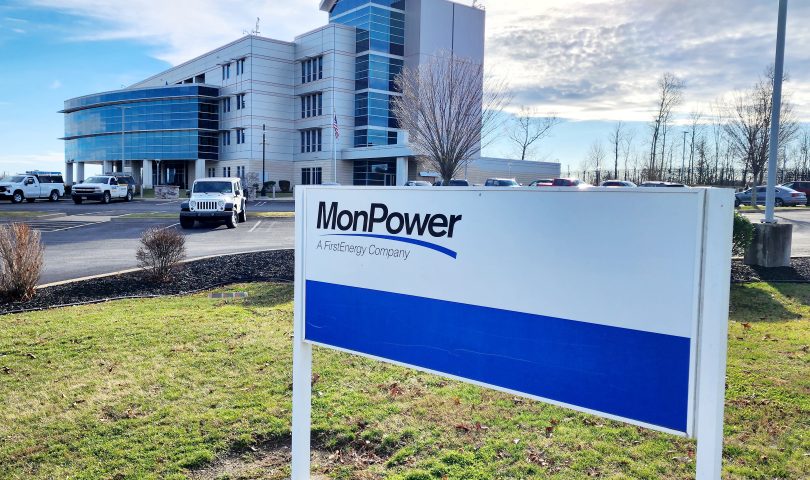MORGANTOWN — Mon Power, Potomac Edison and the various parties involved in the companies’ base-rate increase case have filed a proposed settlement with the Public Service Commission and await the PSC’s approval.
Joining the companies in the Joint Stipulation and Agreement filed Tuesday are PSC staff, the PSC’s Consumer Advocate Division, the West Virginia Energy Users Group, Longview Power, West Virginia Citizen Action Group, Solar United Neighbors and Energy Efficient West Virginia.
The FirstEnergy sisters’ previous base-rate case was filed nine years ago. They originated this rate case on May 31, seeking $207.5 million, including for their infrastructure and their energy assistance programs. The hike would have cost the average residential customer $18.07 per month, a 15% hike. The overall proposed increase across all customer types — residential, commercial, industrial and street lighting — was 13%.
In later testimony they reduced their request to $172.8 million, a 10.6% hike, the settlement says.
They’ve settled on an increase of $105 million, a 6.4% overall hike, effective March 27. The companies said the settlement will increase the average monthly residential bill by 7.9% — $9.94.
The settlement doesn’t state how much that would affect the monthly residential bill, only noting these bills will see a 7.9% increase. But the PSC has already OK’d two other rate increases for the companies — for their Vegetation Management Program and for their Expended Net Energy Costs — and those will have to be factored together.
The companies’ request to cut in half the credit for net-metering for home solar customers was not included in the settlement and the parties have asked the PSC to decide on that. This issue was the subject of a two-hour public hearing Monday night — with all speakers opposing the change — and will be further explored in a Thursday evidentiary hearing involving the parties in the settlement.
In the settlement, the companies have agreed to withdraw their request for an Infrastructure Investment Program and to establish instead a three-year IIP pilot program funded with $5 million to $10 million per year. They will book those costs in their next base-rate case, and track the costs and benefits associated with the IIP to possibly propose a full program at a later date.
The companies said in a press release the IIP will enhance reliability in rural areas by funding specific, targeted projects such as the construction of lines that provide alternative sources of power from different circuits.
The companies also agreed to implement an Energy Assistance Outreach Team pilot program for three years or until their next base-rate case, whichever comes later. The annual pilot budget will be $391,609. The companies said this will enhance their ongoing efforts to increase awareness, education and participation in energy assistance programs available to eligible, low-income customers, as well as financial assistance for health and safety improvements.
Jim Myers, president of FirstEnergy’s West Virginia Operations, commented, “We’re pleased to have reached an agreement that supports our important investments that strengthen the energy grid, funds reliability programs targeting rural communities and offers additional assistance to our customers facing financial hardship. We consistently explore avenues for settling cases to streamline processes and minimize expenses for the state and stakeholders.”
Mon Power serves about 395,000 customers in 34 West Virginia counties. Potomac Edison serves about 285,000 customers in seven counties in Maryland and 155,000 customers in the Eastern Panhandle of West Virginia.
Net metering
Net-metering customers generate all or a portion of their own power, typically through solar, and receive credits on their bill for any power they generate in excess of what they use.
Currently, the companies provide a full 1-to-1 credit, meaning energy given to the utility is worth the same as energy bought from the utility. The current residential base rate is about 11.4 cents per kilowatt hour (kWh) and could go up to about 13 cents as the companies’ several rate cases reach their respective conclusions.
The companies propose to change that to base credits on the wholesale rate for electricity, which the filings calculate at 6.6 cents per kWh — roughly half of the 13 cents per kWh. This would take effect for new net-metering customers joining after March 27, 2024.
PSC staff have agreed that the credit needs to be reduced but proposed a middle ground: 8.8 cents per kWh.
EMAIL: dbeard@dominionpost.com
TWEET @DominionPostWV




